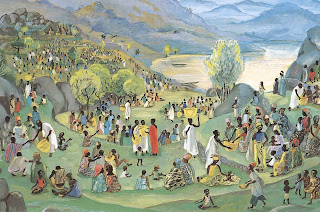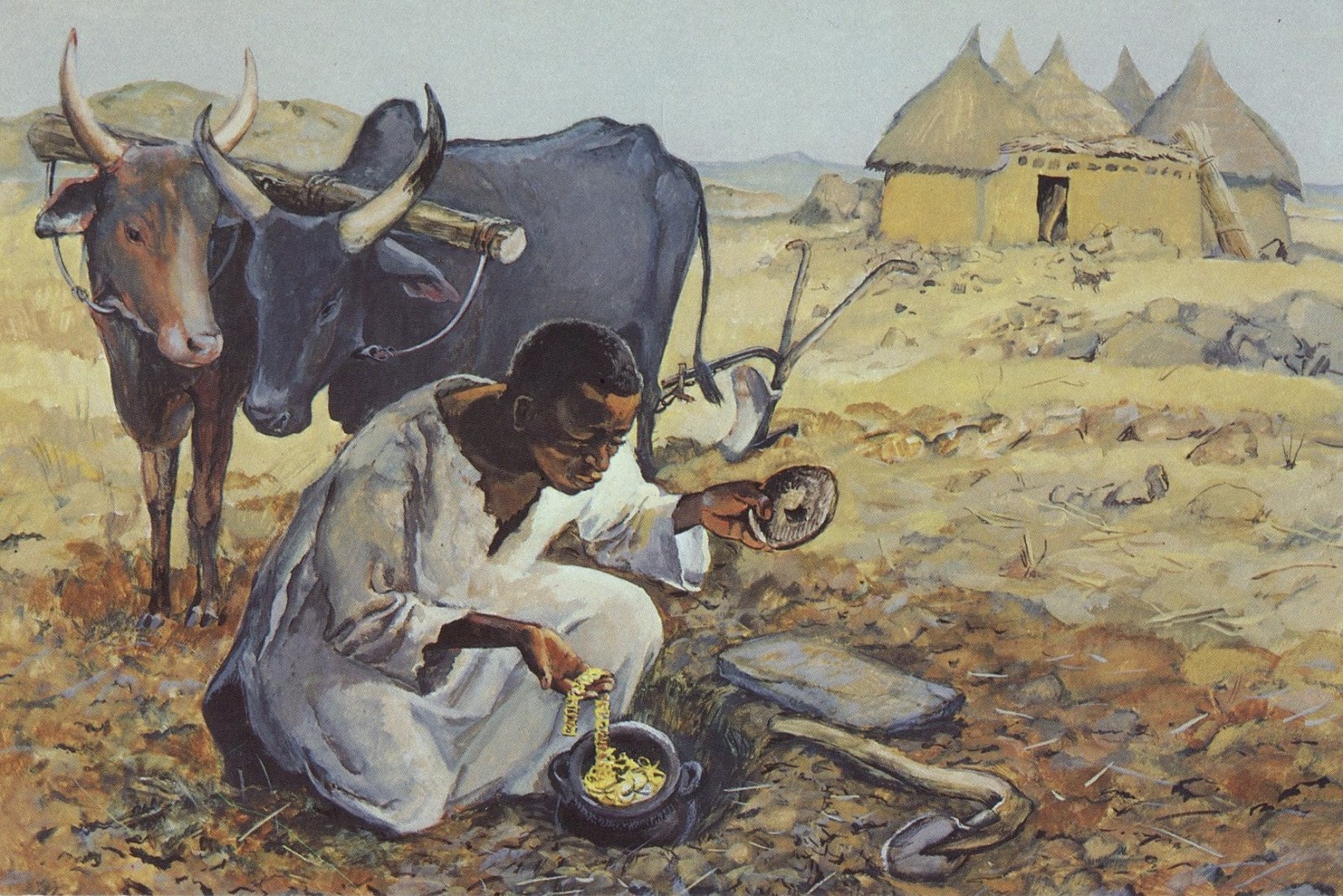Many among us grew up with images of and ideas about Satan that do not actually come from the Bible. Most of us grew up with this idea that Satan is a hideous monster, with a tail, horns, and a pitchfork. Many among us believe that Satan is God's equal. We blame Satan for things that go bad or wrong in our lives, and thank God for the opposite. It's like God and Satan are playing Chess, and we're pieces on the board we call life.
In the book of Job, Satan is with other heavenly beings in the presence of God. In the book of Zechariah, there is a vision of God with Satan to God's right. In Mark, Jesus was in the wilderness for 40 days and nights. He was not alone. He was with Satan. In 1 Chronicles 21, the anger of the LORD is described as Satan. In Numbers 22, the use of the Hebrew term "satan" actually means blocking one's way forward.
In Sunday's lection Jesus calls Peter Satan. Why?! This is Peter, the leader of the disciples: Peter, whose house in Capernaum served as Jesus's home; Peter, the Rock. Peter is probably Jesus's most loyal disciple. Peter is probably Jesus's closest friend. Among the disciples, Peter probably loved Jesus the most. Thus, he did not want him to suffer, to be rejected, and to be killed. Peter thought Jesus was making a big mistake by going to Jerusalem.
Jesus calls Peter Satan. Why? Peter was in the way, in front of Jesus. Jesus tells him to get behind him, to get out of his way. Peter was wrong!
My friends, never, ever, forget this. Satan does not have horns, a tail, and a pitchfork. Many times in our lives, the adversary is not the enemy. Many times, the one who opposes or blocks our decision, our mission, or our advocacy is a loved one. Family. Parents. Spouses. Children. Friends--even a best friend. Like Peter.
Why, you ask? Because they love us. Because they think we are making a mistake. Because they want what they believe is best for our well-being. Because they do not want us to undergo great suffering. Because they do not want us to be killed. They behave like Peter.
Every day people decide to follow Jesus, to follow the path dedicated to the least, the lost, the last, and the left out, to fight against tyranny and dictatorships, to work for peace based on justice, to proclaim good news to the poor and liberation to the oppressed.
And every day, people who love, people who care, people who do not want their beloved to suffer, to be rejected, to die, or to experience hell on earth, do as Peter did. They rebuke their loved ones because they think they're making a big mistake. They stand in the way.
Like Peter, they become Satan. Like Jesus, we need to rebuke them and continue on the path that God has called us to tread.
*art, "Get Thee Behind Me, Satan!" by James Tissot (1836-1902), from the vanderbilt divinity library digital archives.









